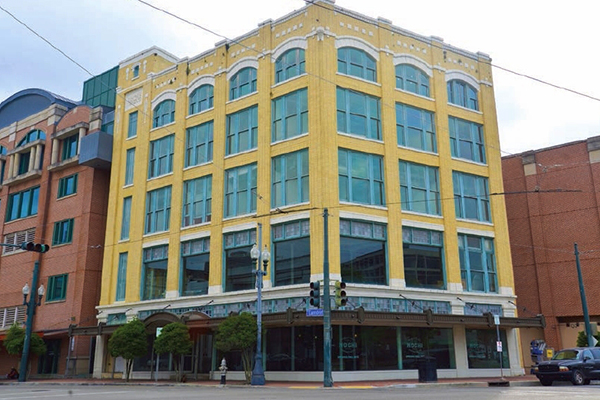
The Freeman School plans to offer executive and professional programs and launch hospitality entrepreneurship initiatives in space at the New Orleans Culinary & Hospitality Institute.
New Orleans is world-renowned as a top destination for food and tourism, but can the city’s excellence in hospitality offer winning insights for entrepreneurs and executives in other industries?
That’s the idea behind one of several new education programs the Freeman School plans to launch in a high-profile space downtown. The Freeman School will be a tenant in the New Orleans Culinary & Hospitality Institute (NOCHI), a new culinary and hospitality industry education hub planned in the former Louisiana ArtWorks building at 725 Howard Ave.
Freeman will lease approximately 25,000 gross square feet for classroom, office and programming space in the five-story facility, which will shortly be under renovation. The venture will give Freeman space to create new programs for graduate and undergraduate students as well as working professionals in close proximity to the city’s central business district.
“We are planning to create and offer executive education, non-degree programming to serve the needs of the growing New Orleans business community and the many visitors to our city,” said Ira Solomon, Freeman School dean.
NOCHI backers include restaurateurs Ti Martin of Commander’s Palace and Dickie Brennan. It will feature two culinary teaching labs, two baking and pastry labs, a restaurant lab, a wine and spirits lab, a large event center including a banquet kitchen, a café open to the public, and traditional classroom and office spaces.
In addition to offering degree and non-degree programs for executives and working professionals, Freeman plans to launch new hospitality entrepreneurship initiatives in the space that leverage their proximity to NOCHI. These offerings will use the hospitality industry to gain new insights and solve problems across business disciplines and industries. John Clarke, the Freeman School’s associate dean for graduate programs, believes the hospitality context can be used as a mechanism to understand interactions between companies and their customers and employees. These insights, Clarke said, can be translated and generalized
to other industries.
“Our non-traditional view of hospitality — as a context for learning and research — extends its relevance and applicability beyond travel, tourism and hospitality to a wide range of other important industries including health care, retail, consumer products, financial services and professional services,” Clarke said. “In the Freeman School, we believe that the hospitality context applies whenever an organization is focused on user experience and customer satisfaction.”

